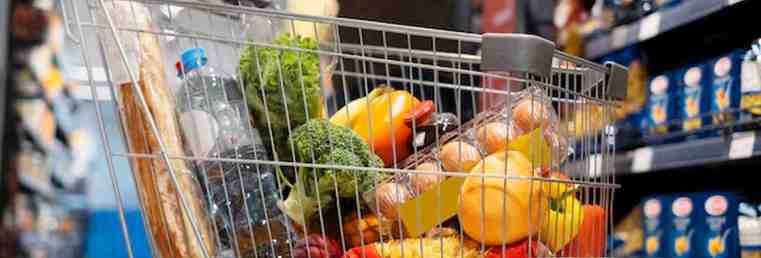BAJAJ BROKING
🚨 Trading Holiday 🚨
Open a Free Demat Account
Trade Now, Pay Later with up to 4x
Track Market Movers Instantly
Post-Budget 2025: Key Changes and Their Impact on the FMCG Industry
The Union Budget 2025 presented by Finance Minister Nirmala Sitharaman has introduced pivotal changes aimed at bolstering economic growth, fostering consumption, and supporting various industries. With significant tax relief for the middle class and a focus on rural development, the budget is poised to provide a direct boost to the Fast-Moving Consumer Goods (FMCG) industry. The government's decision to make income up to Rs 12 lakh tax-free is expected to enhance consumer spending, particularly benefiting the FMCG sector, which has been facing urban demand pressures.
#BudgetSimpleHai
Tax Relief for the Middle Class – The budget makes income up to Rs 12 lakh tax-free, increasing disposable income and boosting consumer spending.
Rural Development Focus – Investments in rural infrastructure and agricultural initiatives will enhance purchasing power in non-urban areas.
MSME Support – Enhanced credit guarantees and financing options for MSMEs will help streamline supply chains for FMCG companies.
Economic Growth Priorities – The budget emphasizes accelerating growth, inclusive development, private sector investments, and household financial well-being.
Positive Industry Outlook – FMCG leaders view the tax relief and agricultural support as strong catalysts for demand growth.
Overview of Budget 2025 and Its Focus Areas
The Finance Minister outlined five key priorities in the Union Budget 2025:
Accelerating growth
Inclusive development
Private sector investments
Uplifting household sentiments
Enhancing the spending power of India's rising middle class
These initiatives, combined with strategic reforms, are expected to create a favorable economic environment that will benefit both businesses and consumers.
Key Changes in Budget 2025 Affecting the FMCG Industry
The following changes in Budget 2025 have a direct impact on the FMCG sector:
Tax Relief: The exemption of income up to Rs 12 lakh from tax significantly increases disposable incomes, enhancing consumer spending.
Rural Infrastructure Investments: Strengthened focus on rural infrastructure will boost consumption in non-urban areas.
Agricultural Sector Support: The Dhan Dhanya Krishi Yojana and Kisan Credit Card loan limit expansion will provide financial aid to farmers, leading to increased purchasing power in rural markets.
MSME Growth Initiatives: Enhanced credit guarantees and funding support for MSMEs, which form a critical part of the supply chain for FMCG companies, will streamline operations and growth.
Impact of Budget Changes on FMCG Companies
The budget’s emphasis on increasing disposable incomes and rural development has drawn attention from key FMCG players. The overall sentiment suggests:
Increased disposable income could drive demand for quality food products.
Tax relief may provide financial respite to middle-class families, potentially influencing spending and economic activity.
The budget’s focus on economic growth and purchasing power might impact demand across markets.
Higher discretionary spending is expected to have an effect on the retail and real estate sectors.
Let’s Shrimp it up
The budget also supports the expansion of agricultural initiatives, including crop diversification and post-harvest storage improvements. This is expected to have a positive impact on agricultural-based FMCG products, including dairy, processed foods, and edible oils.
With a growing demand for high-protein diets, investments in agricultural reforms and food processing are anticipated to boost segments like packaged seafood, ready-to-eat meals, and organic food products.
Strategic Recommendations for FMCG Businesses
Given the favorable changes in Budget 2025, FMCG businesses can leverage the following strategies:
Expanding Product Lines: Companies should introduce premium and value-added products targeting the middle-class segment benefiting from tax relief.
Strengthening Rural Presence: Increased rural consumption presents an opportunity for expanding distribution networks in tier-2 and tier-3 cities.
Investing in Digital and E-commerce Channels: With rising disposable incomes, FMCG companies should enhance their digital presence and invest in direct-to-consumer (DTC) models.
Enhancing Supply Chain Efficiency: With MSMEs receiving better credit access, FMCG firms should collaborate with small suppliers to optimize logistics and inventory management.
Conclusion
The Union Budget 2025 provides a strong push to consumer spending, particularly benefiting the FMCG industry. The increase in disposable income, rural development focus, and MSME support create an ideal environment for growth. Companies that strategically align with these budgetary changes will be well-positioned to capitalize on the evolving consumer landscape. As businesses adapt to these fiscal measures, the FMCG sector stands poised for a robust recovery and expansion in the coming year.
Disclaimer: Investments in the securities market are subject to market risk, read all related documents carefully before investing.
This content is for educational purposes only. Securities quoted are exemplary and not recommendatory.
For All Disclaimers Click Here: https://www.bajajbroking.in/disclaimer
Share this article:
Read More Blogs
Our Secure Trading Platforms
Level up your stock market experience: Download the Bajaj Broking App for effortless investing and trading












